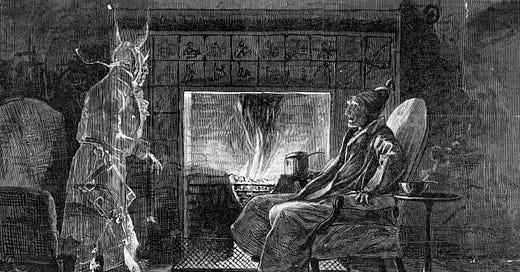Dickens at Christmas
Some thoughts on “A Christmas Carol” and why sentimentality is forgivable during the festive season.
According to George Orwell, on Lenin’s deathbed he was read A Christmas Carol by Charles Dickens and was revolted by its “bourgeois sentimentality”. One wonders if he made it as far as Bob Cratchit holding back the tears as he assures his wife, none too convincingly, that Tiny Tim is “growing strong and hearty”. It’s an indulgence likely to try the pati…
Keep reading with a 7-day free trial
Subscribe to Andrew Doyle to keep reading this post and get 7 days of free access to the full post archives.




